Do you use sugar substitutes or considering it?
Much of my thinking on sugar was “born” the day I read about it via Dr. Natasha Campbell-McBride MD’s book, Gut and Psychology Syndrome.
I have never forgotten these basic principles.
Here are some things from the book on “sugar:”
- “‘Sugar was once called a “white death.” It deserves 100% of this title.”‘
- “Apart from causing the blood-glucose roller coaster and having a detrimental effect on the gut flora, it has been shown to have a direct damaging effect on the immune system.”
- “On top of that, to deal with the sugar onslaught, the body has to use available minerals, vitamins, and enzymes at an alarming rate, finishing up being depleted of these vital substances.”
- “Cakes, sweets, and other confectioneries are made with sugar and wheat, as the main ingredients, plus lots of chemicals like colours, preservatives, flavourings, etc. It goes without saying that they should be out of the diet (with or without gluten).”
- “‘Aspartame, a sugar replacement in so-called “diet” drinks, has been found to be carcinogenic and neurotoxic and most definitely should be avoided.”
So if you decide to nix your sugar habit, how can you still get your fix? Simple.
Sugar Substitutes
Click HERE to save this for later.
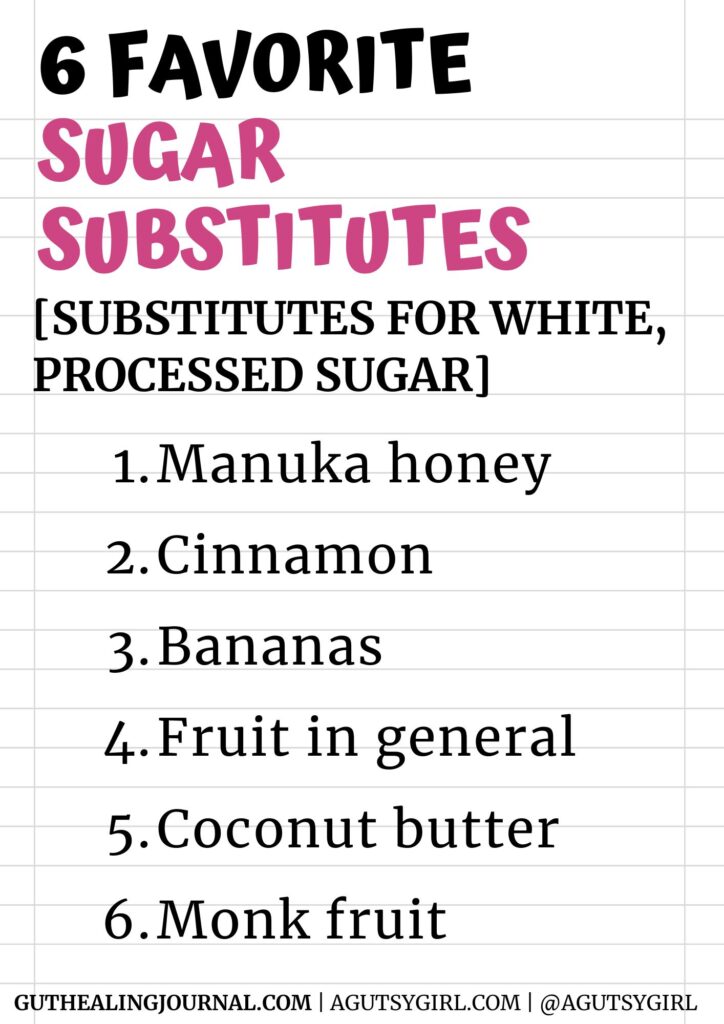
There are many different ways to approach defining a sugar substitute.
For the sake of this post, I am using a substitute for plain old, white, processed sugar only.
6 Favorite Sugar Substitutes
1] Honey
2] Cinnamon
I swear I could put cinnamon on and in everything!
I have been known to put it in coffee and soups, on cereal and in protein pancakes.
It also ROCKS when added to the dessert version of my AIP Bread.
Cinnamon is a spice that contains no actual sugar, but oftentimes mimics sugar in certain recipes.
3] Bananas
These are probably my main “sugar” source.
The riper the banana, the more sugar it contains.
Green bananas are starchier.
Therefore, you can eat a ripe banana as-is for a sugar swap, but you can also use it in baked goods to mimic a sweeter flavor.
4] Fruit, in general
Have you ever heard that fruit is, “nature’s candy.”
It’s true.
Fruit is naturally sweet, so, I love eating almost any and all fruit in the same way as the banana.
5] Coconut butter
Naturally sweet and delicious.
There is very little sugar in both of my dessert nut butter’s of choice, Nikki’s Coconut Butter and also Nutiva’s Coconut Manna.
6] Monk Fruit
I’m obsessed.
I steer clear of Stevia for the most part, but love the Monkfruit.
The added bonus?
No nasty Stevia aftertaste.
Are those the only sugar substitutes?
No way.
There are so many alternative sugars and names for those sugars.
In fact, I have a whole list of 192 HERE.
In addition to all this, here are some other FAQ’s on sugars.
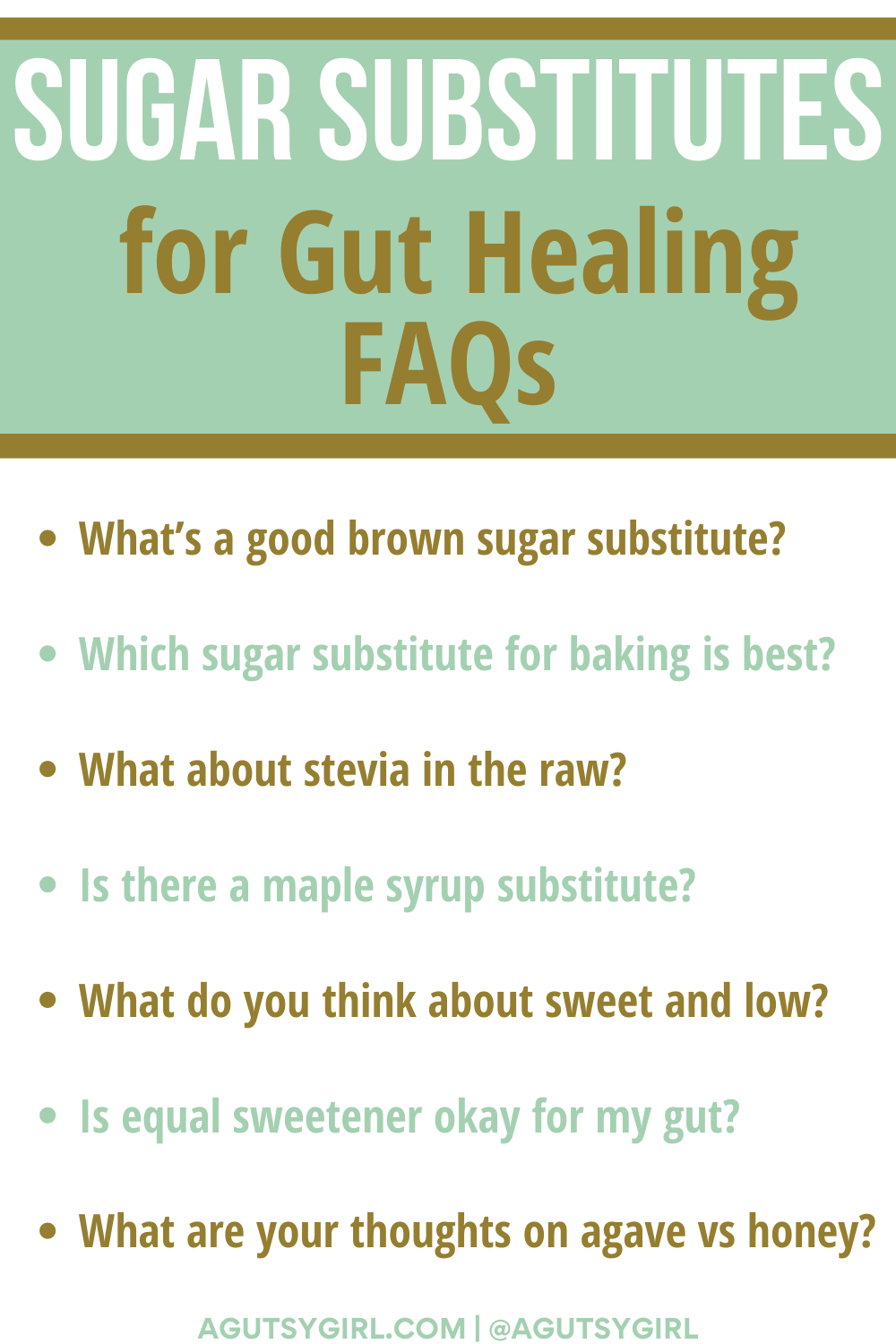
What’s a good brown sugar substitute?
For a regular sweetener, I like to use coconut sugar.
The biggest difference between brown sugar and coconut sugar is that coconut sugar is made from the nectar of coconut palm tree flowers; brown sugar is made just like white sugar (from cane or sugar beets).
Coconut sugar is also lower on the GI (Glycemic Index) than brown sugar.
- coconut = 35
- brown = 64
Which sugar substitute for baking is best?
This totally depends on what you are baking. Some sugar substitutes will work better than others. For example, you’ll need to ask yourself:
- Can my sugar substitute be liquid (i.e. honey vs. white sugar0?
- Is the alternative sugar going to measure 1-for-1? There are a few good ones (date sugar + monk fruit) via Thrive Market.
- How does the sugar respond to higher heat?
What about stevia in the raw?
Stevia in the raw is a nonnutritive sweetener, which means it has zero calories and no nutritional value.
The reasons I personally don’t like or use it are:
- I hate the stevia aftertaste.
- For me, I noticed a correlation between stevia consumption and cystic back acne.
Is there a maple syrup substitute?
Especially in the Gutsy community, maple syrup is often given as a sugar substitute because it’s low FODMAP.
If you’re not interested in using it, my top 3 suggestions to replace it are:
- Date syrup (we like the Date Lady Organic Syrup)
- Honey
- Agave
What do you think about sweet and low?
Sweet ‘N Low is saccharin and it comes in the pink packet.
While the pink might be bright, vibrant, and calling your name, I’d advise you to refrain.
Dr. Peter Osborne shares toxic side effects from headaches to nerve damage, bloating to dizziness.
Is equal sweetener okay for my gut?
Equal sweetener is no better than Sweet ‘N Low. This is aspartame and comes in the blue packet.
In fact, aspartame caused cancer in three independent studies using laboratory rats and mice. According to the International Agency for Research on Cancer and government agencies around the world, a chemical that has been shown to cause cancer in animals should be assumed to pose a cancer risk to humans.
What are your thoughts on agave vs honey?
From a FODMAP standpoint, both agave and honey are high FODMAP.
So taking that out of the equation, I will always choose honey.
While the idea of agave is “healthy,” the way it lands in our hands is anything but.
I personally enjoy the taste of honey more, too.
Always a sugar substitute?
No, I do not always choose a sugar substitute.
Quite honestly, sometimes if you just eat the real thing via organic, cane sugar in a special treat, you’re going to be far better off than trying to “trick” the system.
Just because you have honey or coconut sugar or even monk fruit, doesn’t mean you can sit around eating sugar 24/7 and think it’s not affecting your gut healing.
You can always track your sugar consumption, habits, and sources and see how they are working for you personally.
That will give you the most accurate information.
If you liked this post, you might also enjoy:
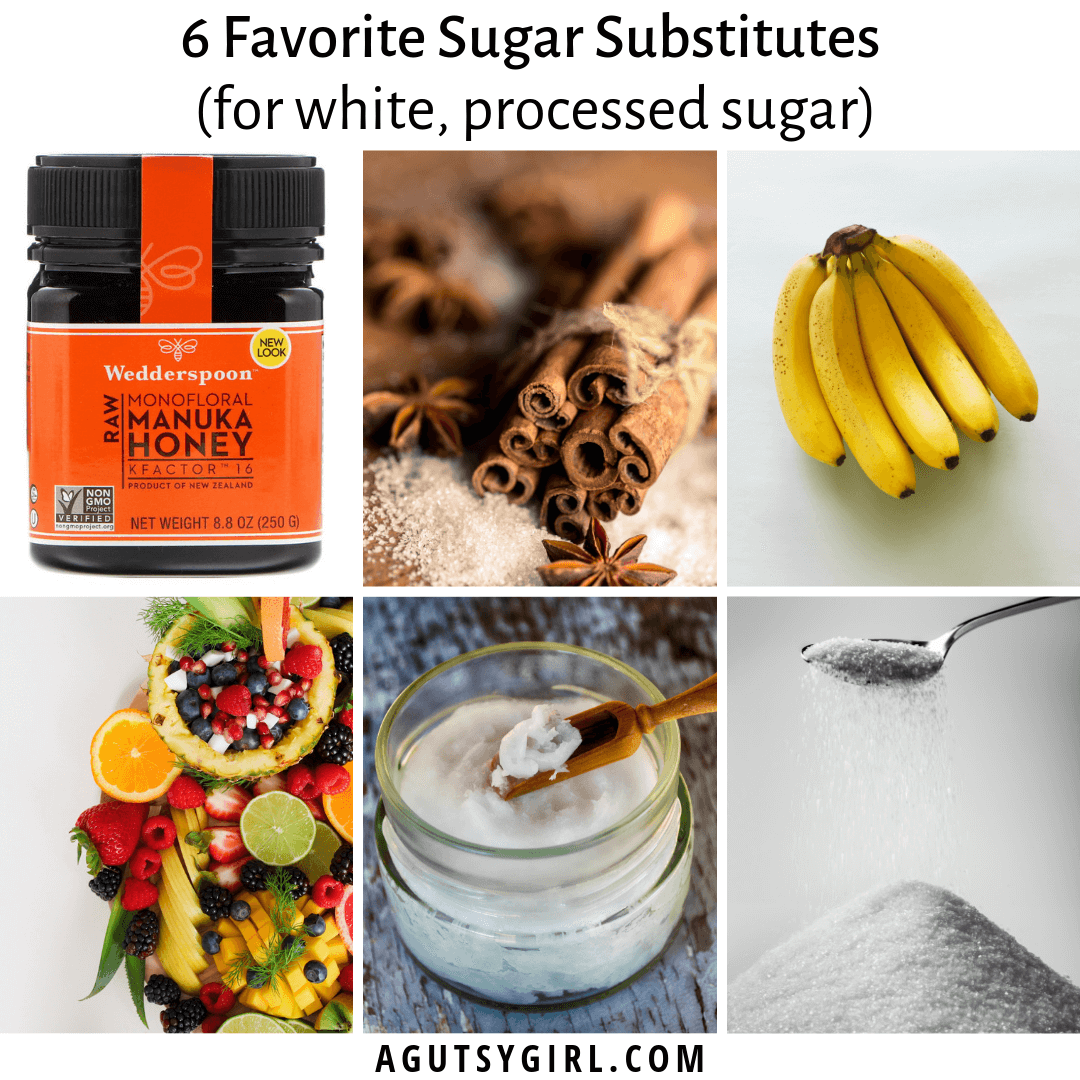
Xox,
SKH
🤰 bloating be gone! weight loss through optimal gut health for women
💃ʜᴇᴀʟ ʏᴏᴜʀ ɢᴜᴛ. ʜᴇᴀʟ ʏᴏᴜʀ ʟɪfe.
🫶🏻 founder gutbyome.com

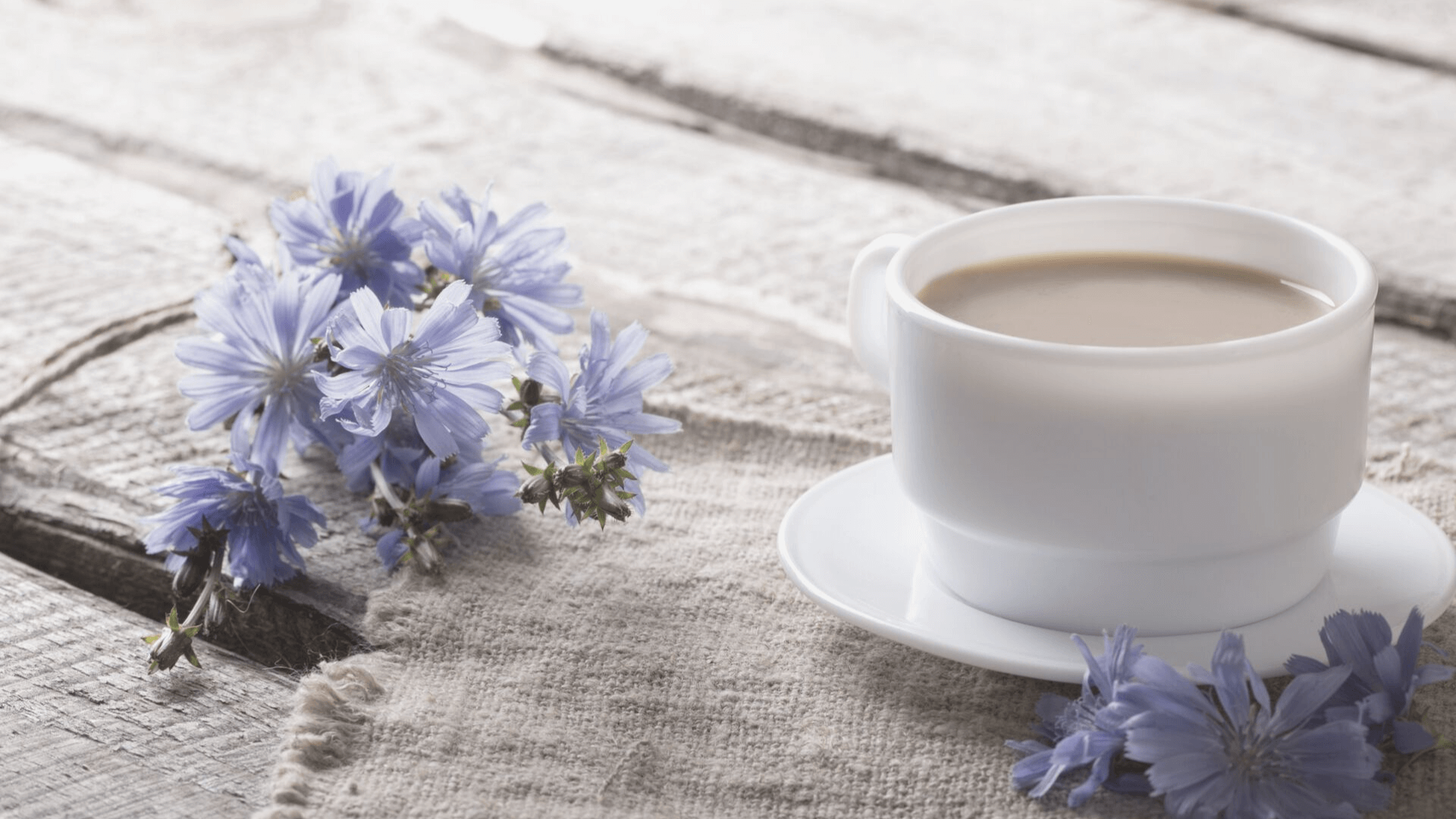
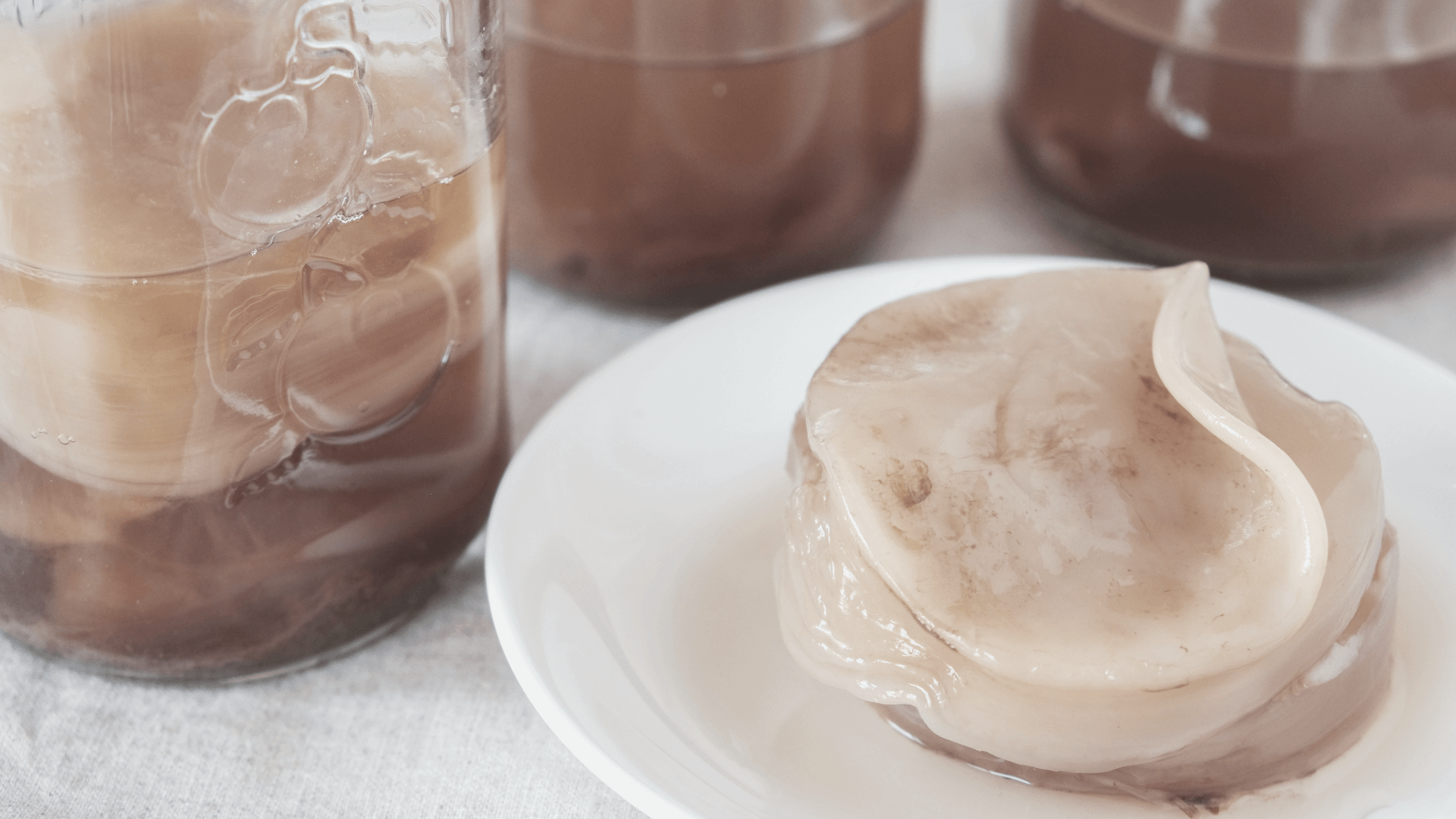
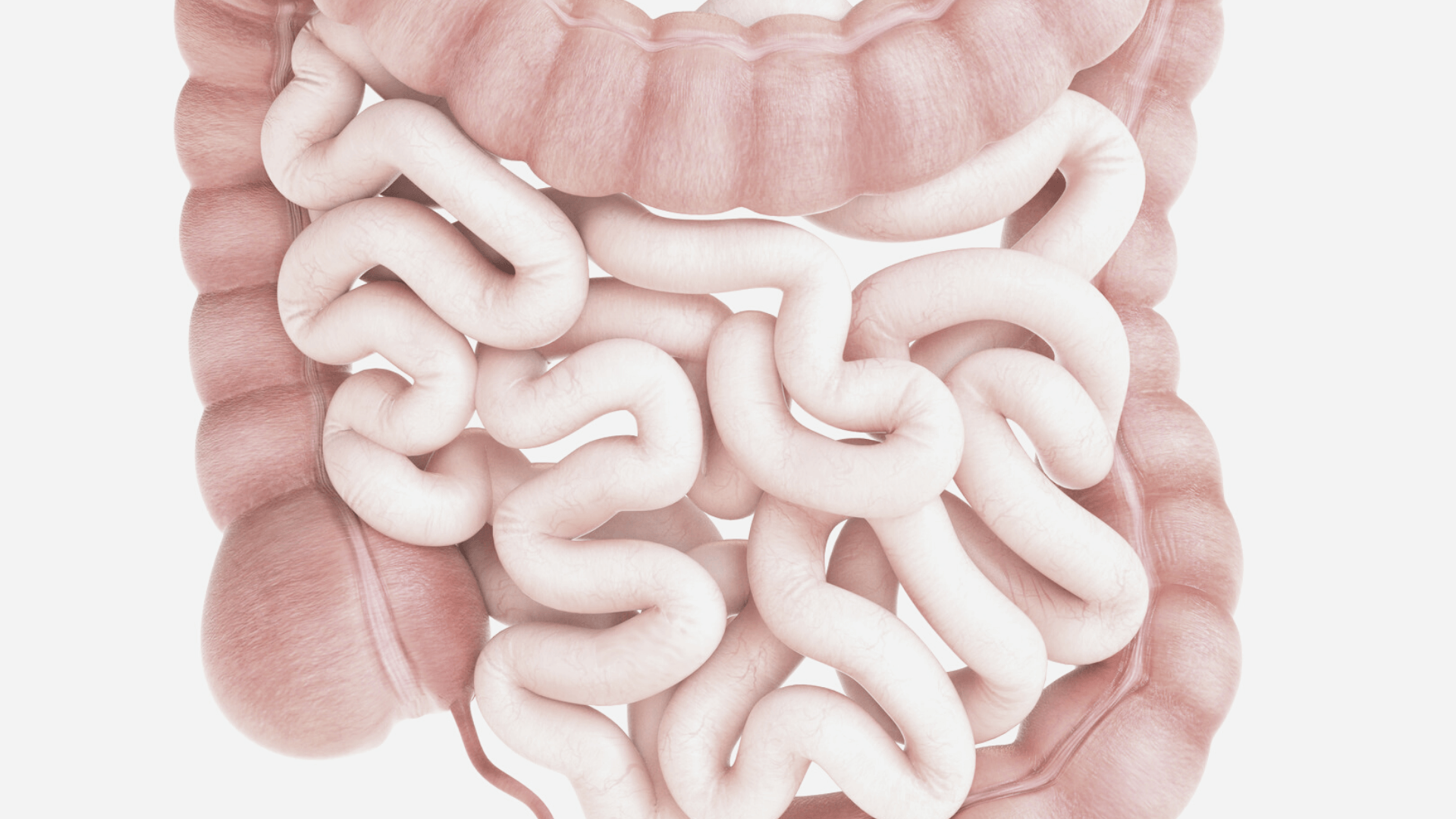
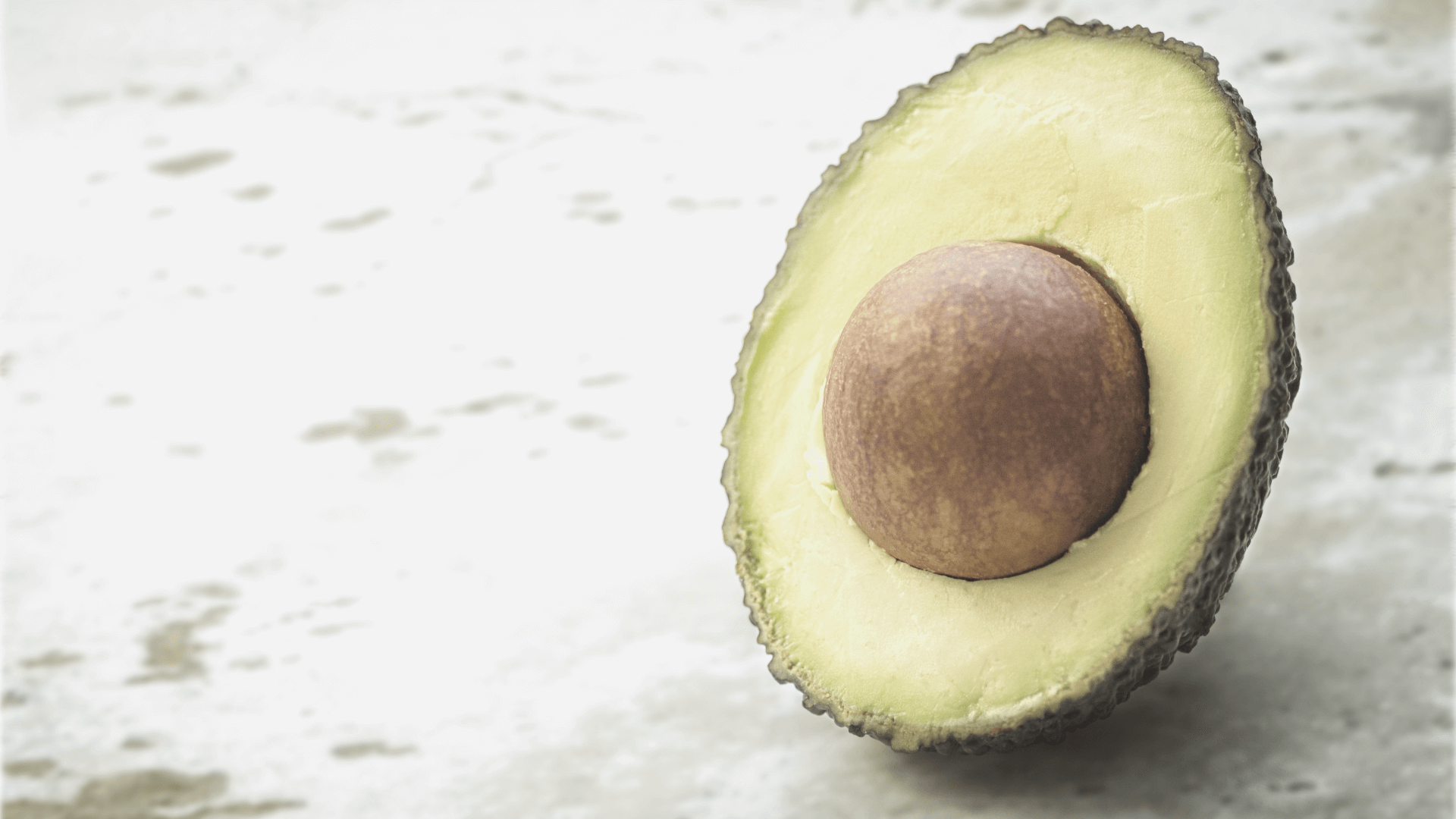
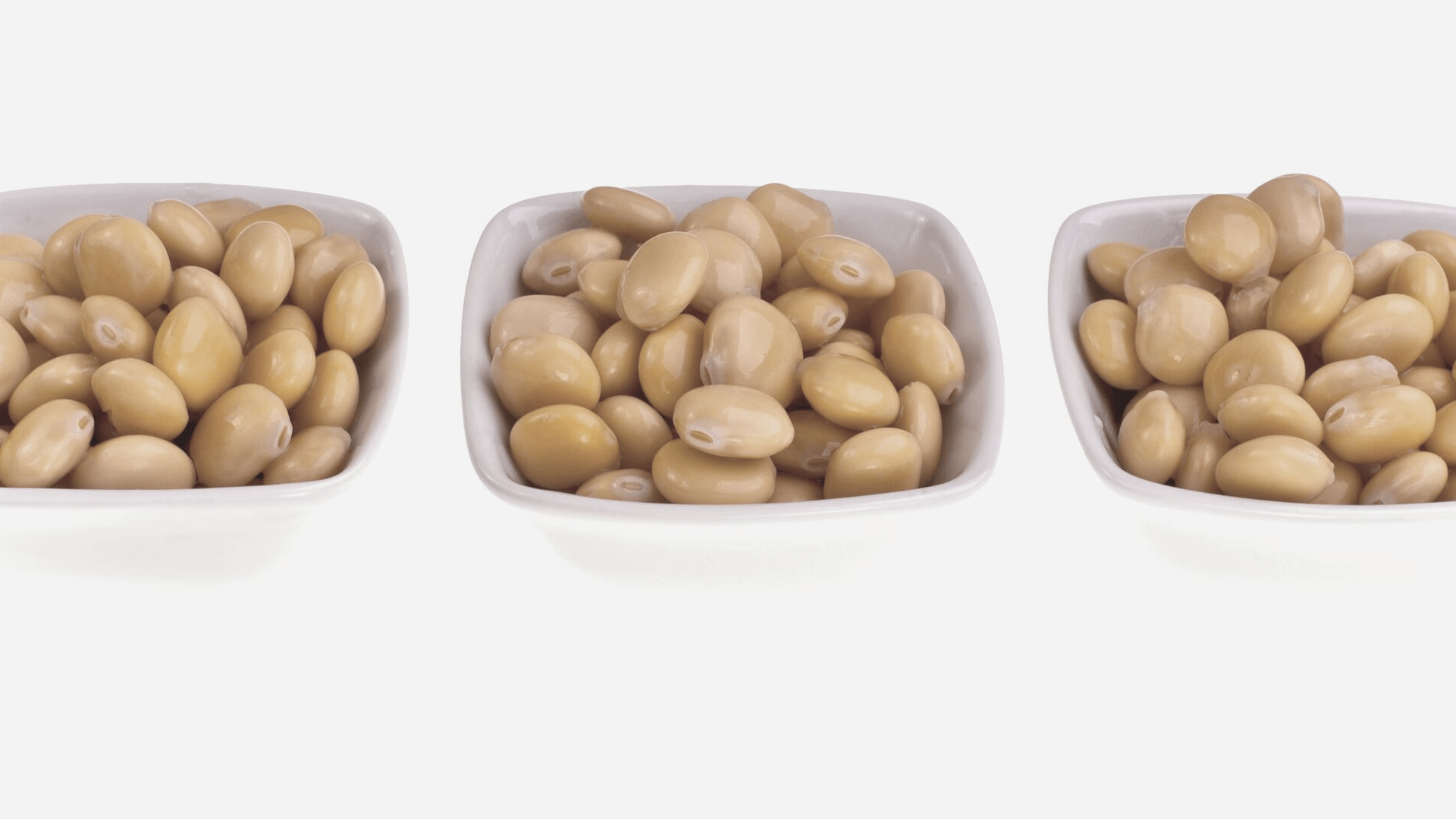
![Gut Health Test [free and paid]](https://agutsygirl.com/wp-content/uploads/2021/07/gut-health-featured-agutsygirl.com_.png)
Awesome post! I love sugar so much but have been trying to make substitutions lately since I know how bad it is.